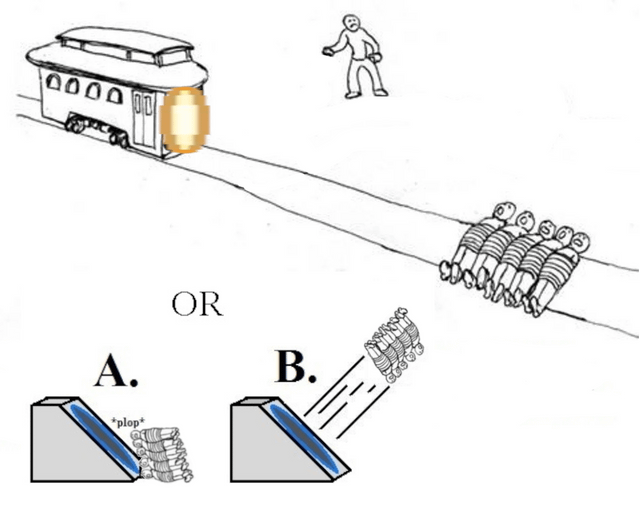this post was submitted on 18 Aug 2023
919 points (96.9% liked)
Memes
51570 readers
1192 users here now
Rules:
- Be civil and nice.
- Try not to excessively repost, as a rule of thumb, wait at least 2 months to do it if you have to.
founded 6 years ago
MODERATORS
you are viewing a single comment's thread
view the rest of the comments
view the rest of the comments

B) The train transfers momentum to the things that pass through the portal. If it wouldn't, the portal couldn't exist since you need a certain amount of energy to displace the air on the other end.
I don't agree. Inertia and momentum are not affected by a portal, even a moving one. If so, their legs would be stretched as they were partially through the portal till the body was being jerked away from the neck causing an even greated relative velocity compared to entering the portal.
Let's say the train moves at 100mph, therefore your body needs to exit the other portal at 100mph. Otherwise it would be compressed. What happens to the energy of this movement if you just stop on the other end?
We also need to consider the air that is in front of the train as it moves forward. That air is going into the portal at the rate the train moves forward and therefore coming out the other portal at that rate.
Fun fact, the portal doesn't exist.
Not with that attitude!